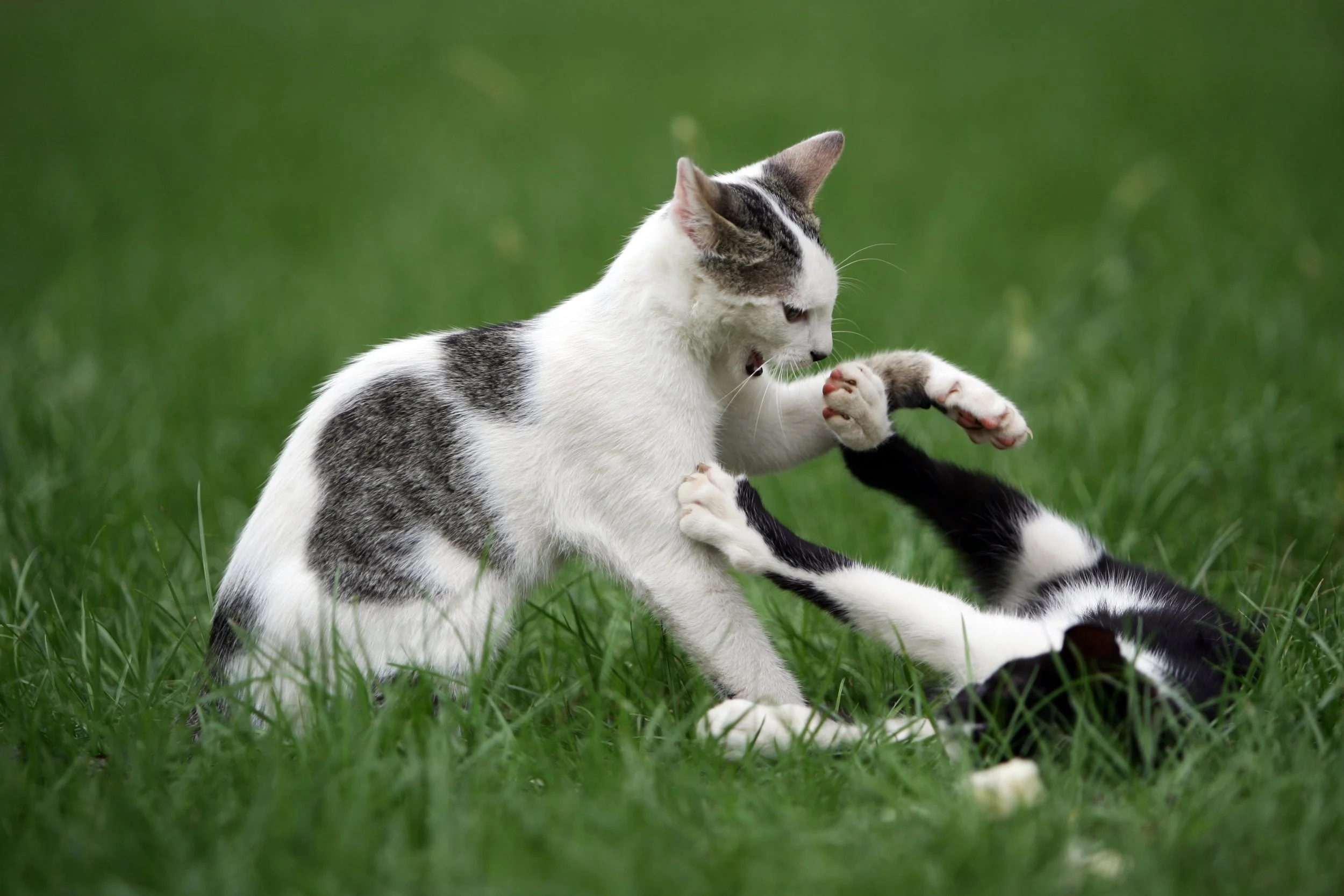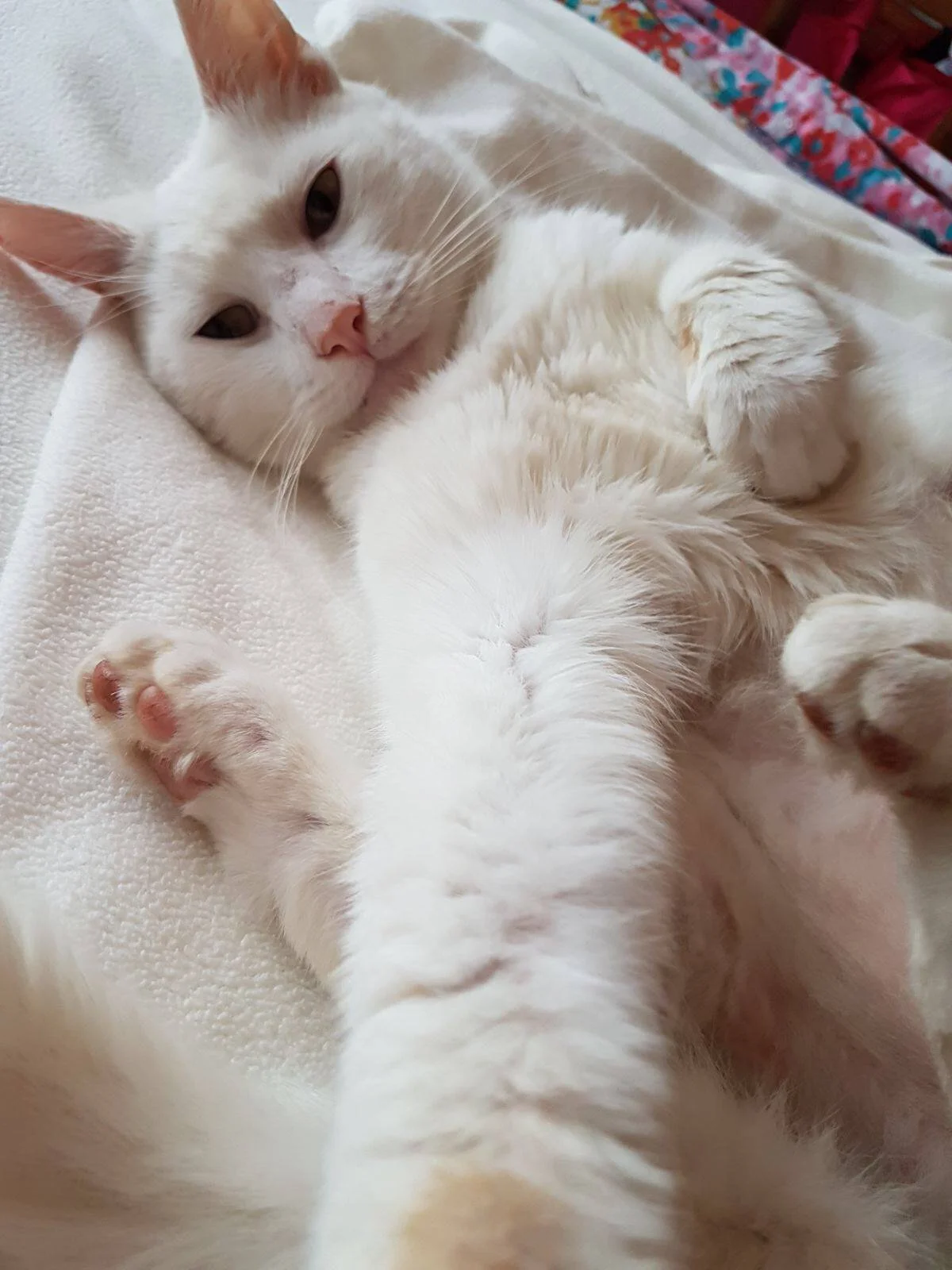Management of a feral cat colony (1) - FIV
Part of CAT77’s work is to manage established feral colonies. This is achieved through Trap-Neuter-Return of adult cats and any older, untameable kittens. Feral cats can live their lives in their own territory, with a feeder to watch over them for any injuries or health issues, or any new cats joining an existing colony which also need neutering.
In the course of feral cat work, we come across a number of diseases, and we take a quick look at one of them here…
FIV – Feline Immunodeficiency Virus
FIV was first isolated in the mid-1980s. Although widespread, it is not considered common in cats. FIV infects cells of the immune system, killing or damaging the cells it affects. This causes a decline in the cat’s immune function. Once a cat contracts FIV, it has this condition for the rest of its life. However, it can be managed. Not all cats infected by FIV will show clinical signs.
The virus is most commonly transmitted from one cat to another via transfer of saliva in deep cat bites. So, in unneutered colonies, the tom cats will fight each other, and can also infect the female cats when mating. This is why neutering is so vital. FIV doesn’t survive long in the environment however, and is commonly destroyed by disinfectants. FIV cannot be transmitted to humans.
Cat fights are the main route of transmission of FIV. Once infected, the cat can potentially pass on the virus to other males and queens
Signs of infection
The signs of FIV are numerous, including weight loss, tooth and gum issues and respiratory problems. If a cat is showing signs of illness, the first step is to take a blood sample and do a “SNAP test” which is a kit stocked by the vets and will test for the presence of antibodies in the cat’s system. These tests are not 100% accurate and it is totally wrong to put a cat to sleep on the basis of this test before carrying out a further, more accurate, test. This is performed by sending bloods onto a veterinary laboratory. The exception would be if the cat is considered to be suffering, in which case we are guided by veterinary advice.
What if the cat tests positive for FIV?
In the case of kittens, secondary testing is even more vital because kittens born to FIV-infected queens will receive antibodies from the queen via the milk, and so will test positive early in life, though they may not be infected. If a kitten shows a positive test result, our policy is always to retest when the kittens are older.
FIV is no longer considered a death sentence for cats, as it was back in the 1980s. With proper management, the neutering of feral cats and prompt veterinary treatment, we have had cats live to a good age, like ‘Yellow Mini’, one of our first FIV+ cats who lived with another FIV+ cat and both reached eighteen years of age. Incidentally, these cats shared a household with several non FIV positive cats. They were tested regularly, yet none of them ever became infected with the virus.
© Cat Action Trust 1977
Beautiful Casper, rescued by Leeds CAT77 had been living rough for a long time. He is FIV+ but you can see what a healthy and contented cat he is. Casper was rehomed to lovely people who understand that an FIV positive cat can lead a happy life for many years with good care.


